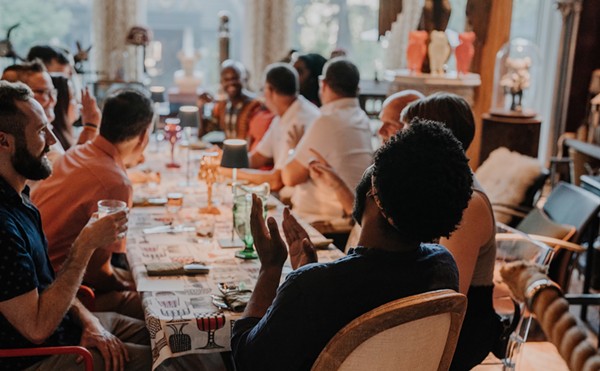Well, we can chalk up another medical Cannabis Cup for the state of Michigan. Truth is, I was too busy to make it to Clio, although the Wyclef Jean show to cap it off would have been worth the trip on its own. At least I got to enjoy Lee DeVito’s posts from the affair. I think he sent them in by carrier pigeon — an electronic pigeon.
These kinds of things are the fulfillment of lots of strategic planning to make sure things go right. The last Cup, held in Detroit in 2011, was pretty good except for Detroit police felt the need to stroll through and show off a little muscle. That included shutting down the medicating area.
A key aspect of preparation for the Cup is determining who gets the awards. That involves a combination of new tech analysis and old-school evaluation. The high-tech part involves laboratory analysis that detects levels of cannabinoids such as THC and CBD.
The old-school evaluation is more like a wine tasting (without the spit-it-out step). That’s the part when judges get the buds in their hands; they look at it, feel it, smell it, and taste it. After all, the final determinant is the effect it has on a patient.
Part of it involves bragging rights. Growers have considerable egos regarding their product, and there is little in the way of objective evaluation to back up their claim.
“Everybody’s got the best medicine, and nobody else knows what they’re talking about,” says Charmie Gholson, one of the Cannabis Cup judges. She didn’t want to talk about the actual judging, but she did point out how things have changed since the Michigan Medical Marihuana Act was passed in 2008.
“A lot of these [growers] are incredibly skilled,” she says. “There’s a difference now that it’s legal. We can talk to each other and have classes. I care about medicinal qualities.”
Each category, sativa, indica, and hybrids of the two, are evaluated, as well as oils, tinctures, and edibles.
Jamie Lowell, cofounder of the 3rd Coast Compassion Center in Ypsilanti, was another of those judges. His category was hybrids.
“It sounded like it was going to be an interesting and fun experience and an opportunity to utilize some of the tools I’ve picked up over the years from being the manager of an operating medical-marijuana dispensary,” says Lowell. “Five years ago I wouldn’t have known what to do. That was before I was able to see the various ranges of strains and the quality and appeal of those strains. Now I’m able to apply that perspective to this world-class competition.”
Qualities such as presentation, density of buds, the look of the trichomes, the aroma, how it burns, and how well nutrients are flushed out are considered. Trichomes are those fuzzy white hairs rich in cannabinoids that appear on mature cannabis buds.
“I see things that have great essence, the aroma is beautiful, and the taste is great — that’s an indication of some things in there that are beneficial,” says Lowell. “That becomes a little tricky because the final result of the medicine is a result of all the elements of the plant that come together synergistically, along with the patient’s own body. It still comes down to what actually takes place when it’s used. There’s a particular effect; it’s kind of personal.”
Experience counts. This isn’t just about euphoria, although that is a valid medical outcome. However there are individual needs of each patient that need to be weighed, and there is consideration of what properties are going to meet that need.
“I’m a fan of blending things together, but for this particular competition we have to judge strains individually,” says Lowell. “What I do in terms of helping out patients, I’m seeing combinations that I think would be appropriate to try. … I think we’re starting to realize that the THC number isn’t as important as we give it credit for. In plant medicines, all those components are synergistically working together. We’re relying on the properties of the whole plant.”
The cannabis being judged is distributed to evaluators without information about where it came from. However, there are known strains, and Lowell is familiar with many of them. Some things can seem familiar.
“When I look at some of it, I think I’ve seen this for sure,” says Lowell. “You don’t really know for sure, but I’ve seen some things that seem very familiar. I know I’m not going to be totally correct, but that’s a fun part of this whole thing.”
So there was fun to be had at many levels at Cannabis Cup, but there are also very serious aspects. Medical marijuana is real. And while some see it as merely a vehicle toward recreational use, one look at Colorado belies that. Recreational use in Colorado has been a fact since Jan. 1, yet the medical system is still thriving. As I’ve mentioned here before, there are actually medical refugees moving to Colorado from non-medical marijuana states.
The Cannabis Cup is also a trade show for businesses involved in different aspects of the industry. The business end of marijuana involves serious money and numerous facets that are maturing along with medical applications. No winks, nudges, or giggles are involved.
Historic Ballot Count
Speaking of getting serious, a lot was made of the five Michigan cities that either decriminalized possession and use of small amounts of marijuana for adults, or made penalties more lenient, in the November 2011 elections. This year’s prospects make that look small-time. Activists have taken aim at 19 cities for petition initiatives this year.
Hazel Park and Oak Park will vote next week, Aug. 5. So those will be decided quickly. Berkley, Huntington Woods, Pleasant Ridge, Montrose, Mount Pleasant, and Onaway are already verified and on the ballot for November.
Petitions have been turned in for Utica, Grosse Pointe Park, Frankfort, Harrison, and Lapeer but have not yet been verified. There was a big push over the weekend, and organizers felt confident that they would make it in East Lansing, as well as in Port Huron, where expectations were that signatures would be turned in by Tuesday’s deadline.
Signatures were also turned in for Saginaw, although officials haven’t given out any information. Tim Beck of the Safer Michigan Coalition said indications were that there may be a court battle, as was necessary in Oak Park this year and previously in Detroit, to get it on the ballot.
The prospects for Portage were unclear, and as of this writing, it looked like Clare and Keego Harbor would fall short of the required qualifying signatures.
If things pan out as expected, there will be 13 cities voting for decriminalization in November. That number has already caught the attention of some poll watchers nationwide. Paul Armentano, deputy director of the National Organization for the Reform of Marijuana Laws, mentioned Michigan prospects in an article distributed by AlterNet titled “Why 2014 is a major election year for marijuana reform.”
Every time this question comes up for a vote in Michigan, decriminalization wins. This could be a banner year for Michigan’s marijuana reformers.






